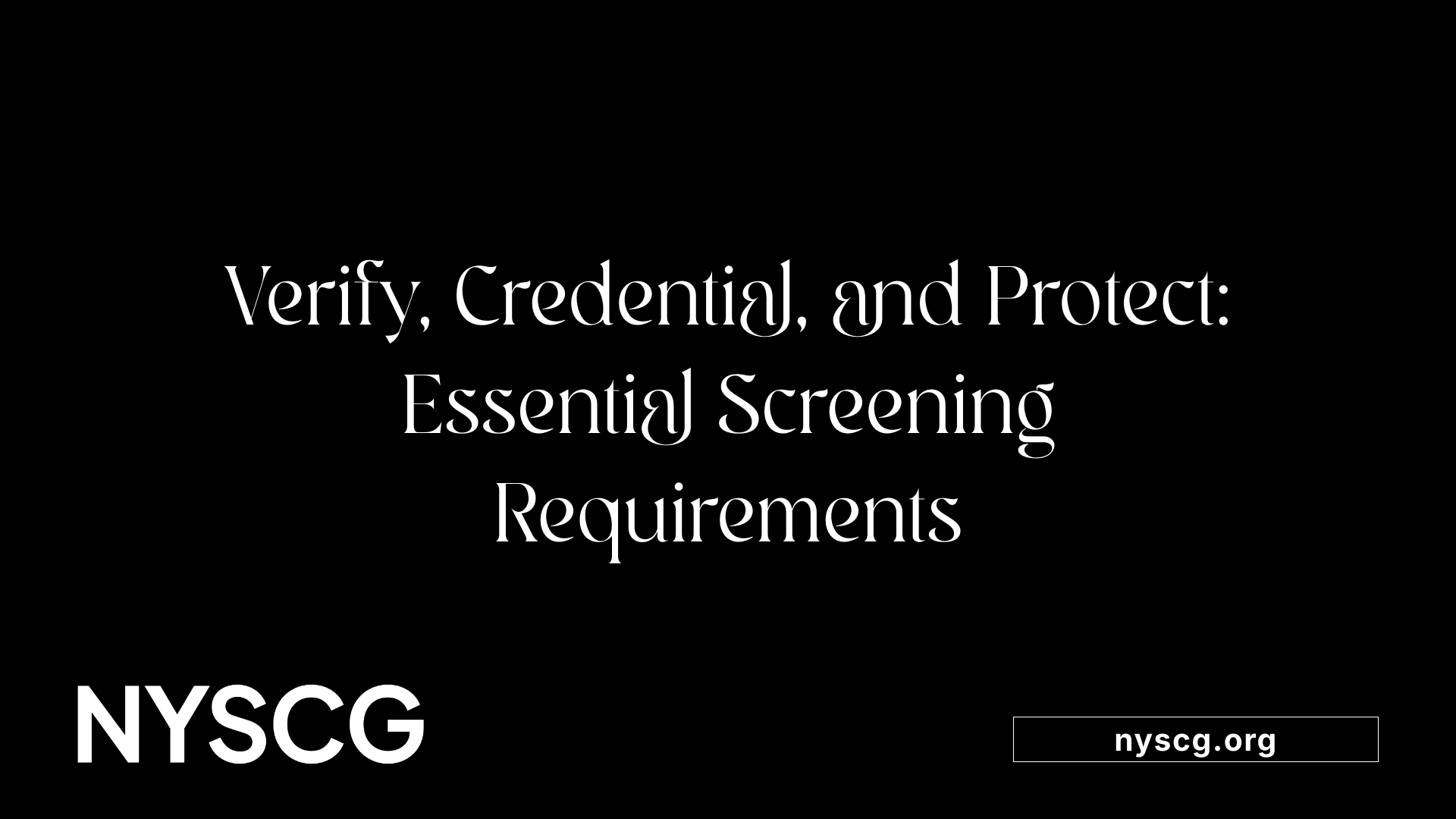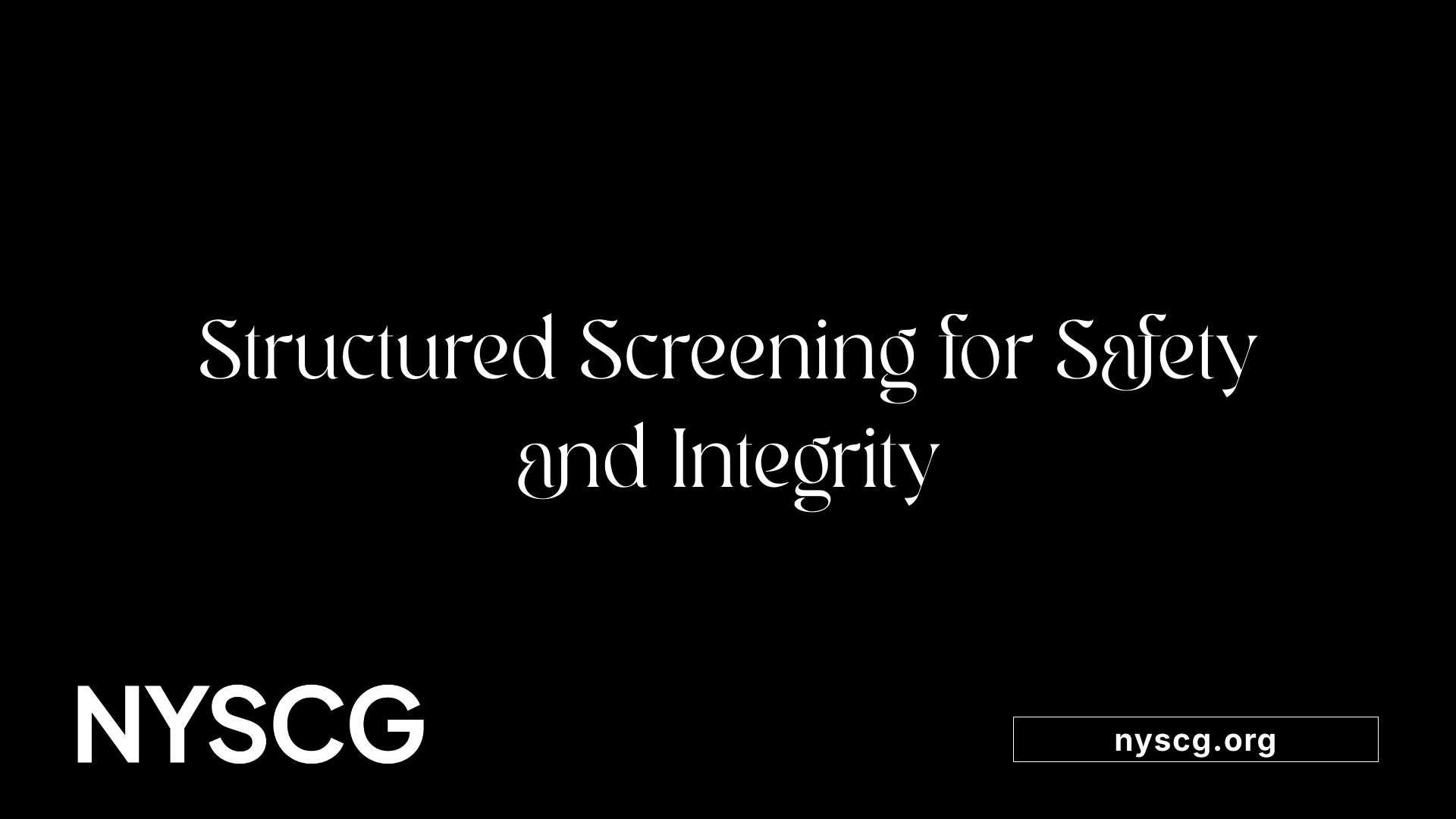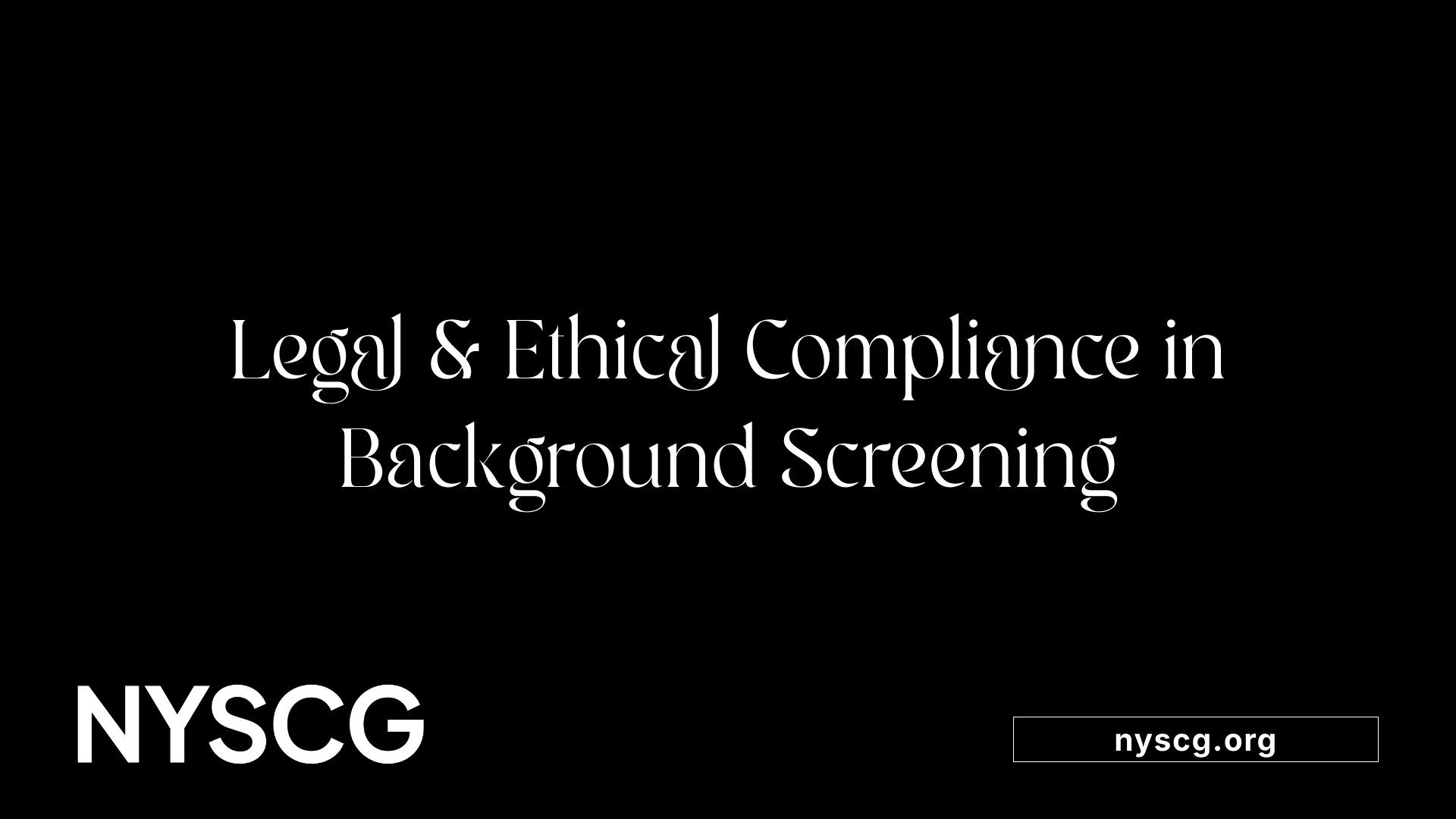Navigating Background Checks for Chaplain Employment


Background checks are a crucial element in the hiring and volunteer vetting process for chaplains across various sectors. They serve to safeguard vulnerable populations, uphold organizational integrity, and ensure that candidates meet high moral and professional standards. As faith-based organizations, healthcare providers, law enforcement agencies, and educational institutions seek qualified spiritual care providers, understanding the nuances of background screening becomes essential to navigating legal requirements and best practices effectively.

Background checks for chaplain roles, whether they are employed or volunteer positions, are vital for ensuring safety and trustworthiness. Typically, these checks include a thorough criminal background search, often spanning national, state, and local records to identify any prior arrests or convictions.
In addition to criminal records, organizations usually verify references provided by the candidate. Reference checks help assess character, professionalism, and past behavior, providing insights that are not always apparent from paperwork alone.
Credential and certification verification are also essential. Many chaplains are required to demonstrate proper endorsement or licensure from recognized religious bodies or professional organizations. Completing relevant training, such as safety and infection control, is mandatory before active service begins.
Some roles, especially those involving sensitive environments or access to vulnerable groups, impose additional screening measures. These may include driving record checks if transportation or mobility is part of the role or financial background checks to prevent misuse of funds or resources.
Organizations like hospitals, faith-based groups, and educational institutions tailor these background screenings to match the responsibilities of the chaplain position. For instance, in law enforcement or federal settings, stricter criteria—such as behavioral assessments, physical examinations, and security clearances—are standard.
Overall, the objective of these comprehensive checks is to confirm that chaplains uphold high moral and professional standards, possess suitable qualifications, and are capable of providing ethical spiritual care safely. This rigorous process helps safeguard vulnerable populations, maintain organizational integrity, and foster community trust.

When organizations seek to ensure the safety and suitability of chaplain candidates, they follow a structured process for background screening. It begins with obtaining written consent from the applicant, which is a legal requirement under the Fair Credit Reporting Act (FCRA) to protect privacy rights.
The next step involves verifying the applicant’s identity through identity verification methods, ensuring that the individual is accurately identified. This is crucial for accurate record checks.
Comprehensive criminal, driving, and financial record checks are then conducted. These checks often include searching national, state, and county criminal records, as well as sex offender registries and motor vehicle records. For volunteer chaplains, additional assessments such as reference interviews and credential verifications might be performed to evaluate character, experience, and professional standing.
Many organizations also require applicants to attend orientation and complete safety, infection control, and health training programs. This not only enhances personal safety but also ensures compliance with organizational policies.
Finally, some institutions incorporate ongoing screening practices, with periodic rescreening every few years, to maintain a safe and trustworthy environment.
This methodical process helps organizations prevent potential risks by hiring individuals with verified backgrounds and integrity, aligning with industry standards and legal requirements.

When implementing background screening for religious employment or volunteer positions, organizations must strictly adhere to all applicable legal requirements to ensure fairness and privacy.
Notice and Consent Procedures involve informing applicants or volunteers about what background information will be checked and securing their explicit approval. This transparency helps build trust and aligns with legal standards. It's crucial that organizations maintain documentation of these consents.
Individual Assessment of Criminal Records is vital. Rather than applying blanket bans, evaluators must review each criminal history case individually, considering factors such as the nature of the offense, time elapsed, and relevance to the role. This approach prevents discrimination and ensures fair treatment.
Adverse Action Processes come into play if the background check results indicate issues. Organizations must provide the individual with a copy of their report, a summary of their rights under FCRA, and an opportunity to dispute or explain discrepancies before making any employment or volunteer decision.
Rescreening policies are also recommended. Regular updates—usually every two to five years—help ensure continued safety, especially in roles involving vulnerable populations like children or seniors. Many organizations use specialized screening tools to facilitate efficient and compliant rescreening.
By following these guidelines, religious and volunteer organizations can support a safe environment while respecting individuals' rights and maintaining legal and ethical integrity.
Implementing thorough and compliant background check procedures is essential for organizations hiring chaplains. Start by developing a clear, written screening policy that details the purpose, scope, and specific checks involved, including criminal history, sex offender registry, identity verification, and reference checks.
Obtain explicit, written consent from each candidate before beginning the background screening process. This not only ensures legal compliance, particularly with laws like the Fair Credit Reporting Act (FCRA), but also respects the applicant’s privacy rights.
Partner with reputable background screening providers who comply with industry standards. These providers leverage reliable databases and technology—such as online or fingerprint-based checks—to ensure fast, accurate results. For example, platforms like Ministry Mobilizer are designed specifically for faith-based organizations, offering integrated and secure screening solutions.
It is crucial to manage and protect the privacy of all background check information. Keep results confidential and limit access to authorized personnel only. Training staff involved in the screening process on data protection and privacy compliance helps safeguard sensitive information.
Furthermore, organizations should implement ongoing screening mechanisms. Regular rescreening, generally every two to five years, helps detect any new issues and maintain a safe environment.
Transparency is vital throughout this process. Clearly communicating each step to candidates, including how the information will be used and stored, builds trust. Proper documentation of policies and procedures demonstrates a commitment to safety and legal adherence.
In sum, managing background checks with a structured, transparent, and compliant approach not only helps identify suitable candidates but also reinforces the organization's credibility and safety standards.
In the complex landscape of chaplain employment and volunteer engagement, thorough background screening is vital to uphold safety, trust, and professional integrity. Organizations must craft comprehensive policies aligned with legal standards like the FCRA, utilize trusted screening providers, and execute careful, individualized assessments of criminal records. Regular rescreening coupled with transparent communication fosters a culture of safety and accountability. Ultimately, diligent background checks not only protect vulnerable populations but also reinforce the moral foundation and reputation of faith-based and healthcare institutions employing chaplains.
All you need is the will to make the world a better place.
New York State chaplain group inc. is a tax deductible organization with a federal tax Id number 92-383-4921